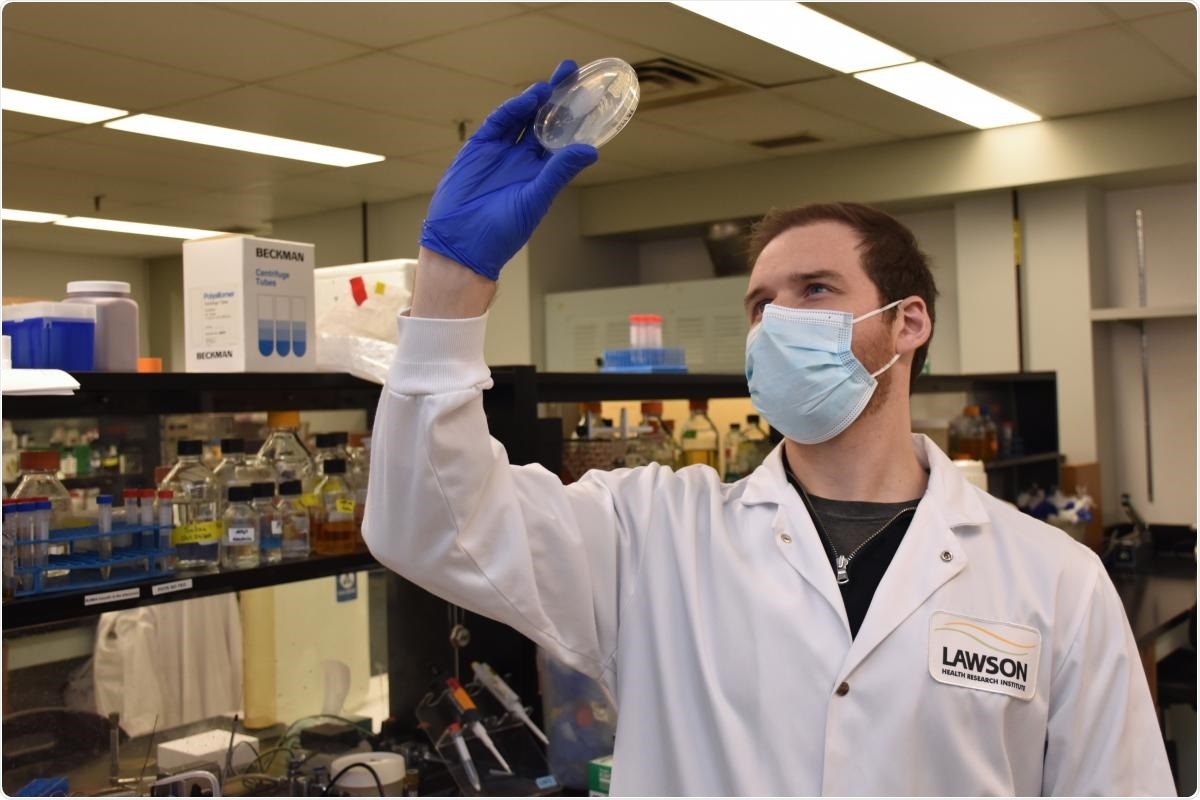
Brendan Daisley, a PhD candidate at Western University’s Schulich School of Medicine & Dentistry who is conducting research at Lawson Health Research Institute. Image Credit: Lawson Health Research Institute.
The researchers believe that this is one of many cases of how the microbiome affects humans’ response to medications.
Research is beginning to uncover the ways in which the human microbiome influences cancer development, progression and treatment. Our study highlights a key interaction between a cancer drug and the gut microbiome that results in beneficial organisms with anti-cancer properties.”
Brendan Daisley, PhD Candidate, Schulich School of Medicine & Dentistry, Western University
Daisley is currently performing research at Lawson Health Research Institute.
Standard prostate cancer treatments are developed to deprive the body of hormones, known as androgens, which are responsible for causing the growth of prostate cancer.
Unfortunately, traditional androgen deprivation therapies are not always effective. In those cases, alternative therapies are explored.”
Dr Joseph Chin, Associate Scientist, Lawson Health Research Institute
Dr Chin is also a Professor at Schulich Medicine & Dentistry and a Urologist at London Health Sciences Centre (LHSC).
Abiraterone acetate is an extremely effective therapy used for treating prostate cancer, which has been impervious to other treatments. While the drug abiraterone acetate also works to decrease androgens in the body, it does so through another mechanism and, unlike standard therapies, it is consumed orally.
When drugs are taken orally, they make their way through the intestinal tract where they come into contact with billions of microorganisms. While it’s long been a mystery why abiraterone acetate is so effective, our team wondered if the gut microbiome plays a role.”
Dr Jeremy Burton, Study Lead Researcher and Scientist, Lawson Health Research Institute
Dr Burton is also an Associate Professor at Schulich Medicine & Dentistry.
The researchers’ study involved 68 prostate cancer patients from LHSC, including those being treated with the drug abiraterone acetate and also those being treated with standard androgen deprivation therapies. The team obtained and examined the patients’ stool samples, and performed additional experiments in their laboratory at St. Joseph’s Health Care London.
They found that gut microbiomes of the patients changed significantly after taking abiraterone acetate. The gut bacteria metabolized this drug, resulting in a substantial increase in a bacterium known as Akkermansia muciniphila.
Called “next-generation probiotic,” the relevance of this bacterium was recently investigated in many large cancer studies. It has been shown to promote a better response to cancer immunotherapy medications and it can also trigger a wide range of other positive health benefits.
The increase in Akkermansia muciniphila also resulted in an increased production of vitamin K2 which is recognized for anti- cancer properties that can prevent tumor growth.
The researchers also noted the effect of androgen depletion on the microbiome. Traditional androgen deprivation therapies as well as abiraterone acetate led to a reduction in organisms that use androgen.
According to Dr Burton, “These findings clearly demonstrate that the gut microbiome is playing a role in treatment response.”
The researchers hope to further investigate the interactions between the drug and the microbiome with an aim of harnessing the microbiome to enhance treatment outcomes for a wide range of diseases.
In yet another study, the team is investigating whether fecal microbiota transplants taken from a healthy donor can alter the microbiome of melanoma patients to increase the number of microbes, such as Akkermansia muciniphila, and enhance response to immunotherapy.
The researchers have also planned to explore whether analysis of a patient’s microbiome can be used for predicting their response to certain treatments.
“While more research is needed, we may one day be able to analyze a patient’s microbiome to determine the best course of treatment or even influence the microbiome to improve outcomes. This could lead to a new frontier in personalized medicine,” Dr Burton concluded.
Source:
Journal reference:
Daisley, B. A., et al. (2020) Abiraterone acetate preferentially enriches for the gut commensal Akkermansia muciniphila in castrate-resistant prostate cancer patients. Nature Communications. doi.org/10.1038/s41467-020-18649-5.